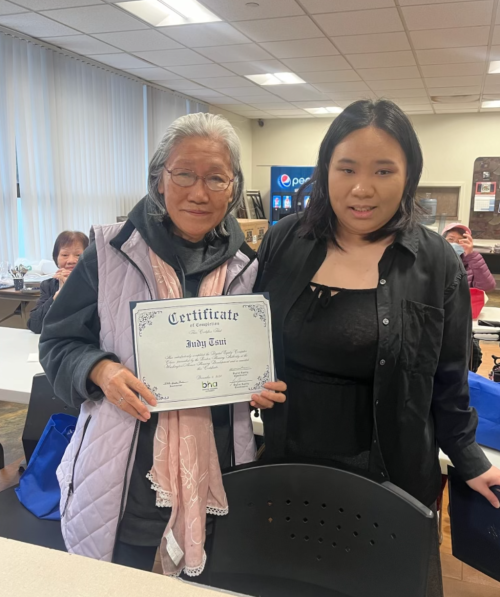
Last fall, in partnership with the City of Boston, the Boston Housing Authority (BHA) launched a slate of digital literacy courses.
The city was awarded more than $5 million in 2023 from the Massachusetts Broadband Institute (MBI) and Federal Communications Commission (FCC) to help BHA residents gain access to affordable and dependable internet connectivity, strengthen telehealth programs and improve overall digital equity efforts.
This funding included $4.55 million from MBI's Digital Equity Partnerships Program and $450,000 through the Municipal Digital Equity Planning Program.
From the $4.55 million, the BHA was granted over $1 million in funding to establish onsite digital literacy courses for its residents.
One of BHA’s major initiatives spotlights the Digital Equity Partnerships Program goal of bridging the digital divide and enhancing digital access by establishing and implementing digital literacy training programs.
These MBI-funded, BHA-hosted programs help ensure Massachusetts residents have the necessary skills to use devices, online resources and digital tools to improve their daily lives.
Courses, like those offered by BHA, make learning more accessible and empower participants to learn with confidence.
In this specific course, 20 participants registered for the program, half of whom were Cantonese speakers and ESL students. To better suit all participants’ needs and empower residents from all backgrounds to confidently learn digital literacy skills, the BHA decided to individualize its planned digital literacy curriculum. The team split the initial cohort into two separate courses, one for Cantonese speakers, the highest representation of non-English speakers enrolled in the MBI-funded program, and a second for the remainder of registrants.
As a result, a Cantonese language instructor, Xiaoyun Huo, was hired by the BHA to facilitate the class.
“Bridging the digital divide requires culturally competent programs that meet people where they are,” said MBI Broadband and Digital Equity Grants Manager Caitlin Schubert. “Through trusted partnerships, like this one, we see the positive impact of courses offered in linguistically appropriate languages that honor community member's lived experiences. This gives residents the confidence and skills to navigate the digital world.”
For participants like Judy Tsui, an 82-year-old BHA resident who emigrated from China in 1997, this small but meaningful gesture meant a more personalized, engaging learning experience.
"I don't want my age to be the reason I stop keeping up with what is happening in the world," said Tsui who is now inspired to continue learning and saw the MBI program’s flexibility as a chance for growth.
BHA facilitators address challenges faced by participants with limited literacy skills in their native languages by making learning more intuitive. The staff introduced voice-to-text technology, allowing participants to speak commands and see them transcribed. This technology helps participants better communicate their needs and questions with the facilitators. Offering this support and personalized approach encouraged participants to engage with technology and helped them develop digital literacy skills in their native language.
After completing the course, Tsui was able to email her instructor well wishes for the Chinese Lunar New Year via her new laptop.
Tsui’s success story highlights the importance of offering digital literacy courses in multiple languages to remove barriers while providing broadband access to previously underserved communities.
